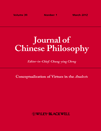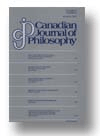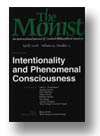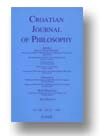
Topicos-Revista de Filosofia
Scope & Guideline
Cultivating a Vibrant Community of Philosophical Thinkers
Introduction
Aims and Scopes
- Practical Philosophy and Ethics:
The journal frequently explores practical philosophy, addressing ethical implications in contemporary contexts, such as education, politics, and personal responsibility. - Historical and Systematic Philosophy:
A core area of focus includes the historical development of philosophical ideas, analyzing figures from Aristotle to modern thinkers, and their contributions to metaphysics, epistemology, and ethics. - Interdisciplinary Approaches:
The journal encourages interdisciplinary research, blending philosophy with insights from sociology, political science, and cognitive science, thereby enriching philosophical discourse. - Critical Theory and Social Philosophy:
There is a strong emphasis on critical theory, examining power structures, social justice, and the philosophical underpinnings of contemporary social issues. - Metaphysical Inquiry:
The journal delves into metaphysical questions, investigating concepts such as time, existence, and reality, often through the lens of significant philosophical movements.
Trending and Emerging
- Gender and Identity Studies:
There is an increasing focus on gender and identity, reflecting broader societal discussions around feminism, queer theory, and the intersectionality of identity in philosophical discourse. - Environmental Philosophy:
Emerging themes related to environmental ethics and philosophy highlight the urgent need to address ecological issues, emphasizing the intersection of philosophy and ecological crises. - Political Philosophy and Critical Theory:
A growing trend in political philosophy, particularly in critical theory, indicates a robust engagement with issues of power, justice, and the role of philosophy in societal transformation. - Philosophy of Technology and Digital Culture:
As technology and digital culture become increasingly pervasive, the journal is seeing more contributions that examine the philosophical implications of technological advancement and digital ethics. - Phenomenology and Existentialism:
A resurgence in interest in phenomenology and existentialism suggests a renewed focus on human experience, consciousness, and the existential dimensions of contemporary life.
Declining or Waning
- Analytic Philosophy:
There has been a noticeable decrease in publications related to analytic philosophy, which may indicate a shift towards more continental or practical philosophical approaches. - Traditional Metaphysical Debates:
Discussions centered around classical metaphysical debates, such as those concerning substance and essence, have become less frequent, suggesting a movement toward more applied or contemporary metaphysical inquiries. - Historical Philosophical Analysis:
While historical analysis remains important, the focus on detailed commentary on historical texts has waned, possibly due to an increasing interest in contemporary philosophical issues. - Philosophy of Science:
The exploration of philosophy of science topics has diminished, indicating a potential shift in the journal's focus towards ethical and social implications of scientific practices rather than theoretical discussions.
Similar Journals

JOURNAL OF CHINESE PHILOSOPHY
Advancing Scholarship in Chinese PhilosophyThe Journal of Chinese Philosophy, published by Brill, stands as a pivotal platform for the exploration and dissemination of research within the realm of philosophy, particularly focusing on traditional and contemporary Chinese thought. With a commitment to academic excellence, this journal has earned a reputation for its rigorous scholarship, as reflected in its Q2 category ranking in the field of Philosophy on Scopus, currently positioned at rank #337 out of 806 in Arts and Humanities. Since its inception in 1973, the journal has consistently engaged scholars, professionals, and students alike, featuring articles that deepen understanding and provoke critical discourse among various philosophical traditions. Although it is not open access, the journal's influential contributions and comprehensive reviews of emerging trends in Chinese philosophy make it an essential resource for anyone engaged in the study of this rich and diverse field. For subscription and access details, interested readers can refer to the publisher's website.

Cosmos and History-The Journal of Natural and Social Philosophy
Illuminating Contemporary Issues Through Philosophical InquiryCosmos and History - The Journal of Natural and Social Philosophy is a pioneering academic journal dedicated to the exploration of philosophical questions within both the natural and social realms. Published by COSMOS PUBL COOPERATIVE in Australia, this Open Access journal has been committed to disseminating knowledge freely since 2005, allowing researchers and scholars from around the globe to access cutting-edge philosophical discourse. With an impressive status, it ranks in the Q2 category for Philosophy in 2023, and holds a commendable position at rank #399 out of 806 in the Arts and Humanities - Philosophy category on Scopus, placing it within the 50th percentile of its field. The journal covers a wide spectrum of topics, pushing the boundaries of interdisciplinary thought and fostering robust academic discussions that contribute to both theoretical and practical applications of philosophy. By addressing pressing contemporary issues, Cosmos and History serves as an invaluable resource for researchers, professionals, and students engaged in the nuanced interplay between philosophical ideas and societal developments, paving the way for future inquiries and innovations.

Filosofiya-Philosophy
Exploring the Depths of ThoughtWelcome to Filosofiya-Philosophy, an esteemed academic journal dedicated to advancing the field of philosophical inquiry. Published by NATSIONALNO IZDATELSTVO AZ BUKI, this journal aims to foster scholarly exchange and promote critical discussions on various philosophical themes and issues, including but not limited to metaphysics, ethics, logic, and epistemology. With its commitment to rigorous research and thought-provoking analyses, Filosofiya-Philosophy seeks to engage researchers, professionals, and students alike, enriching the discourse surrounding philosophical studies. Although currently not an open-access journal, it provides valuable insights that are crucial for the continuous exploration of philosophical ideas. Based in Sofia, Bulgaria, it plays a vital role in the dissemination of philosophical knowledge, inviting submissions from around the globe to enhance its academic community and further its impact in the realm of philosophy.

CANADIAN JOURNAL OF PHILOSOPHY
Exploring the Depths of Contemporary PhilosophyCanadian Journal of Philosophy, published by Cambridge University Press, stands as a pinnacle of scholarly discourse in the field of philosophy. With its ISSN 0045-5091 and E-ISSN 1911-0820, this esteemed journal has cemented its reputation since its inception in 1971, continuing to engage with contemporary philosophical issues up to 2024. The journal is highly regarded, currently holding a Q1 rank in Philosophy and positioned in the 89th percentile of its category according to Scopus rankings. Its focus is on advancing philosophical inquiry, offering a platform for both established scholars and emerging voices to share significant research, critique, and innovative ideas. While the journal is not open access, it provides essential insights that are invaluable for researchers, professionals, and students alike, fostering an environment of intellectual exchange and growth in the philosophical community.

AMERICAN PHILOSOPHICAL QUARTERLY
Exploring the Depths of Philosophical InquiryAMERICAN PHILOSOPHICAL QUARTERLY, published by University of Illinois Press, stands as a premier venue for scholarly discourse in philosophy, boasting an impressive Q1 ranking in its field and positioning itself within the top 19% of its category according to Scopus. With a long-standing history since its inception in 1973, the journal has become influential in shaping contemporary philosophical thought and debate. As a non-open access publication, it provides rigorous peer-reviewed articles that cover a wide range of philosophical topics, catering to the needs of researchers, professionals, and students alike. The journal’s commitment to intellectual excellence and critical inquiry makes it an essential resource for anyone seeking to engage deeply with philosophical issues today.

Acta Philosophica
Navigating the Landscape of Philosophical ThoughtActa Philosophica is a prestigious academic journal dedicated to the exploration and analysis of philosophical thought. Published by Fabrizio Serra Editore in Italy, this journal serves as a vital platform for scholars, presenting rigorous research that contributes to the field of philosophy. With an ISSN of 1121-2179 and an E-ISSN of 1825-6562, Acta Philosophica is indexed in prestigious databases, enhancing its visibility and impact within the academic community. Active since 2011, this journal has emerged as a significant player in the discipline, currently positioned in the Q3 quartile for Philosophy in 2023 and ranked #557 among 806 journals in the Arts and Humanities category on Scopus, placing it in the 30th percentile. Researchers and students alike will find valuable insights within its pages, as it covers a broad spectrum of philosophical inquiries. Although not an open-access journal, its rich content makes it essential reading for anyone invested in advancing philosophical discourse.

MONIST
Elevating Philosophical Research to New HeightsMONIST is a prestigious academic journal published by Oxford University Press Inc, focusing on the intricate dialogues within the field of Philosophy. With an impressive impact factor that places it in the Q1 quartile of its category for 2023, MONIST stands as a leader in promoting high-quality research that bridges various philosophical traditions and methodologies. Established in 1973, the journal has consistently contributed to contemporary discussions by providing a platform for diverse philosophical inquiries and fostering rigorous scholarly debate. Although available through subscription options, MONIST engages a wide audience, including researchers, educators, and students who are deeply invested in advancing philosophical thought. Its Scopus ranking showcases its significant influence in the Arts and Humanities, positioning it at rank 119 out of 806 in its field, symbolizing an 85th percentile standing. With a commitment to excellence and innovation in philosophical scholarship, MONIST continues to be an essential resource for those seeking to deepen their understanding of philosophical issues in a rapidly evolving intellectual landscape.

PHRONESIS-A JOURNAL FOR ANCIENT PHILOSOPHY
Connecting Past Philosophies to Present PerspectivesPHRONESIS: A Journal for Ancient Philosophy, published by BRILL, stands as a premier academic forum dedicated to the exploration of ancient philosophical thought. With its ISSN 0031-8868 and E-ISSN 1568-5284, this journal not only enriches the field of history and philosophy but has also earned a distinguished reputation, reflected in its Q1 ranking in both History and Philosophy categories for 2023. The journal serves a vital role in disseminating scholarly articles that contribute to a deeper understanding of ancient philosophical discourses, impacting both historical studies and contemporary philosophical perspectives. Although not open access, its extensive convergence of issues since its inception in 1957 ensures a wealth of research available through institutional access. With a focus on fostering interdisciplinary dialogue, PHRONESIS offers invaluable insights for researchers, professionals, and students committed to the rich legacy of ancient philosophy.

Dao-A Journal of Comparative Philosophy
Bridging Eastern and Western TraditionsDao: A Journal of Comparative Philosophy, published by Springer, stands as a preeminent platform in the field of comparative philosophy. Since its inception in 2003, this journal has cultivated an esteemed reputation, evidenced by its Q1 ranking in Philosophy and a commendable position within the top 67th percentile of arts and humanities disciplines according to Scopus metrics. The journal invites scholars to engage in a rich dialogue that reflects the diversity of philosophical thought across cultures, promoting interdisciplinary research and fostering an international academic community. Although it does not offer open access, its rigorous peer-review process ensures that each publication contributes significantly to the advancement of philosophical inquiry. Based in the Netherlands, Dao's commitment to exploring the intersections of Eastern and Western philosophical traditions remains vital during its ongoing coverage from 2007 to 2024. By publishing original research, review articles, and critical essays, Dao plays an essential role in shaping the discourse within the philosophical landscape, serving as a valuable resource for researchers, professionals, and students alike.

Croatian Journal of Philosophy
A Nexus for Innovative Philosophical ExplorationCroatian Journal of Philosophy is a distinguished academic platform dedicated to the advancement of philosophical discourse, published by KRUZAK D O O. With an ISSN of 1333-1108 and an E-ISSN of 1847-6139, this journal has been a key player in the field since its inception in 2008, continuing to progress through its converged years until 2024. Recognized for its scholarly contributions, it holds a prestigious placement in Q3 within the philosophy category for 2023 and ranks #571 out of 806 in Scopus, reflecting its engagement with a broad spectrum of scholarly discussions and ideas. Though it operates without an Open Access model, the journal remains a vital resource for researchers, professionals, and students who are keen to explore contemporary and traditional philosophical issues from diverse perspectives. The journal's commitment to expanding the boundaries of philosophical inquiry emphasizes the significance of interdisciplinary dialogue, making it a reputable choice for those seeking to deepen their understanding of philosophical thought.